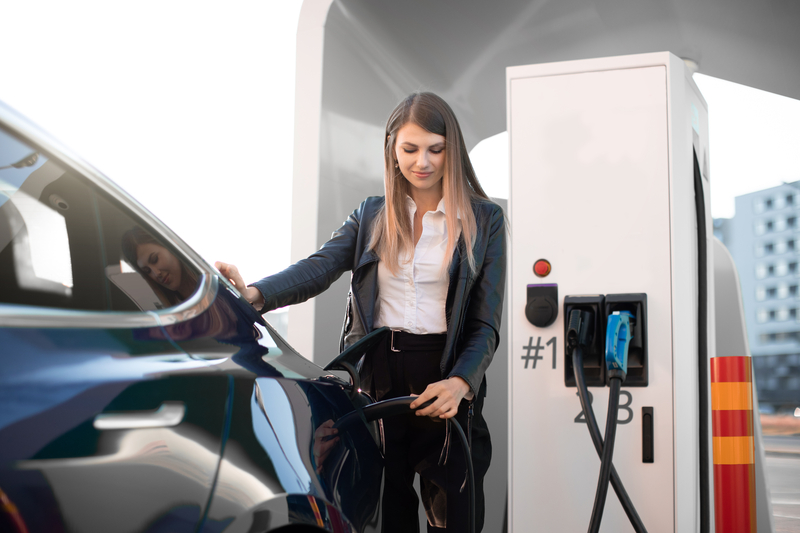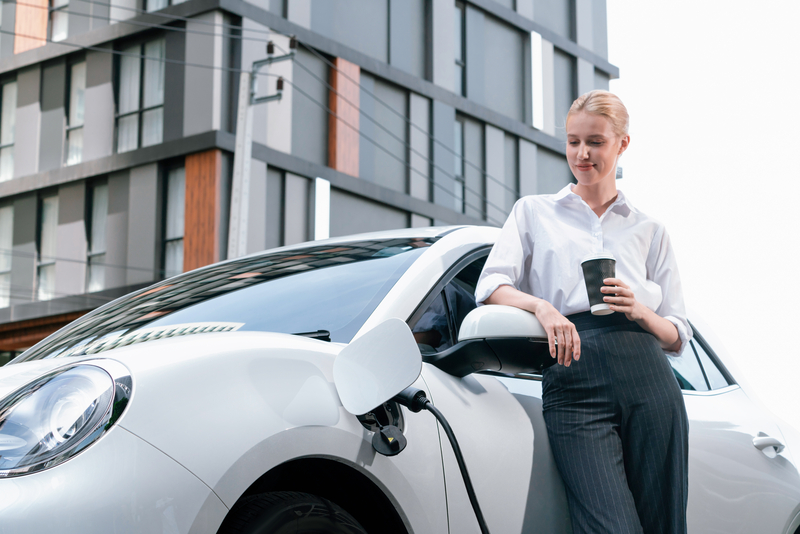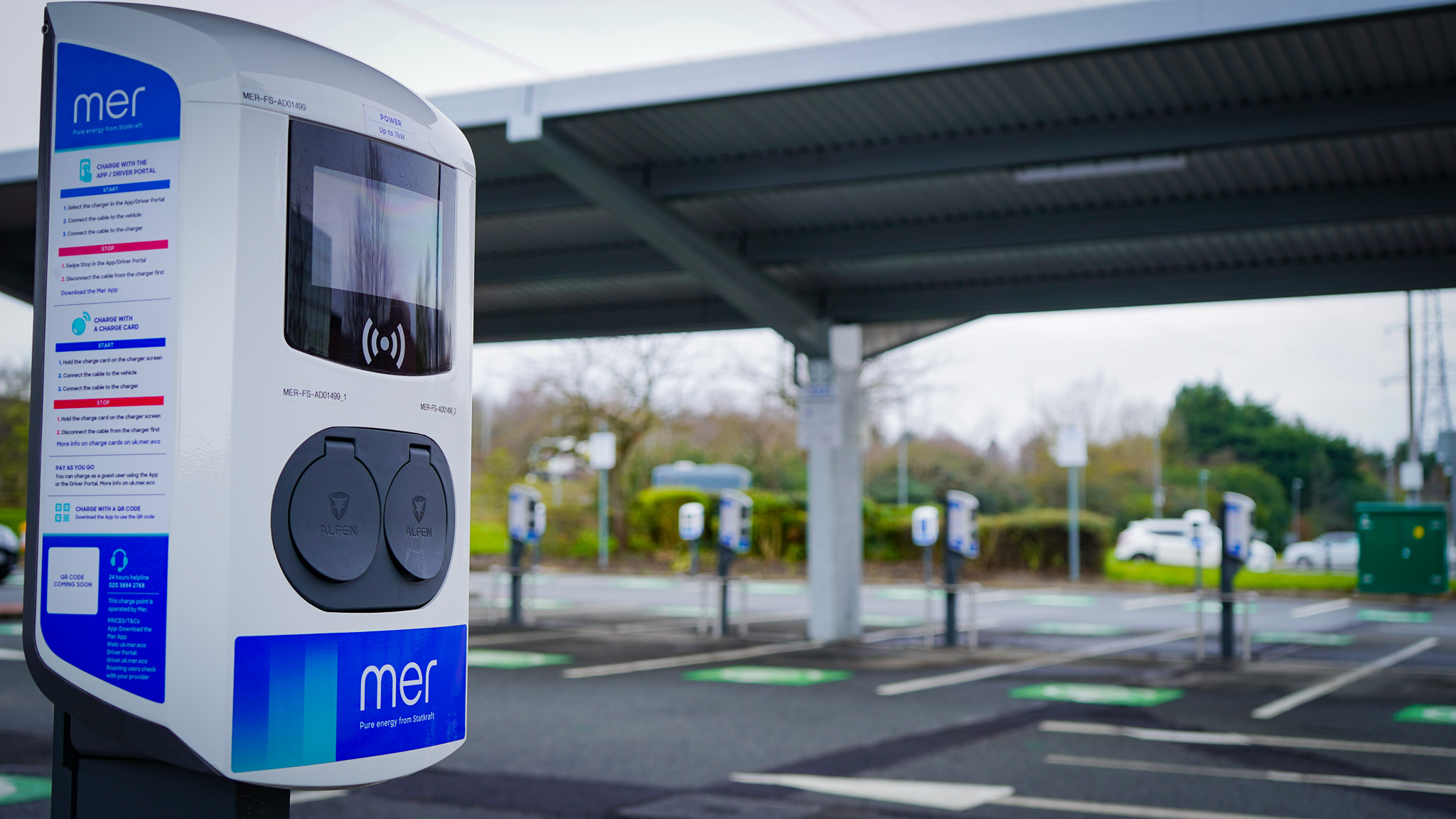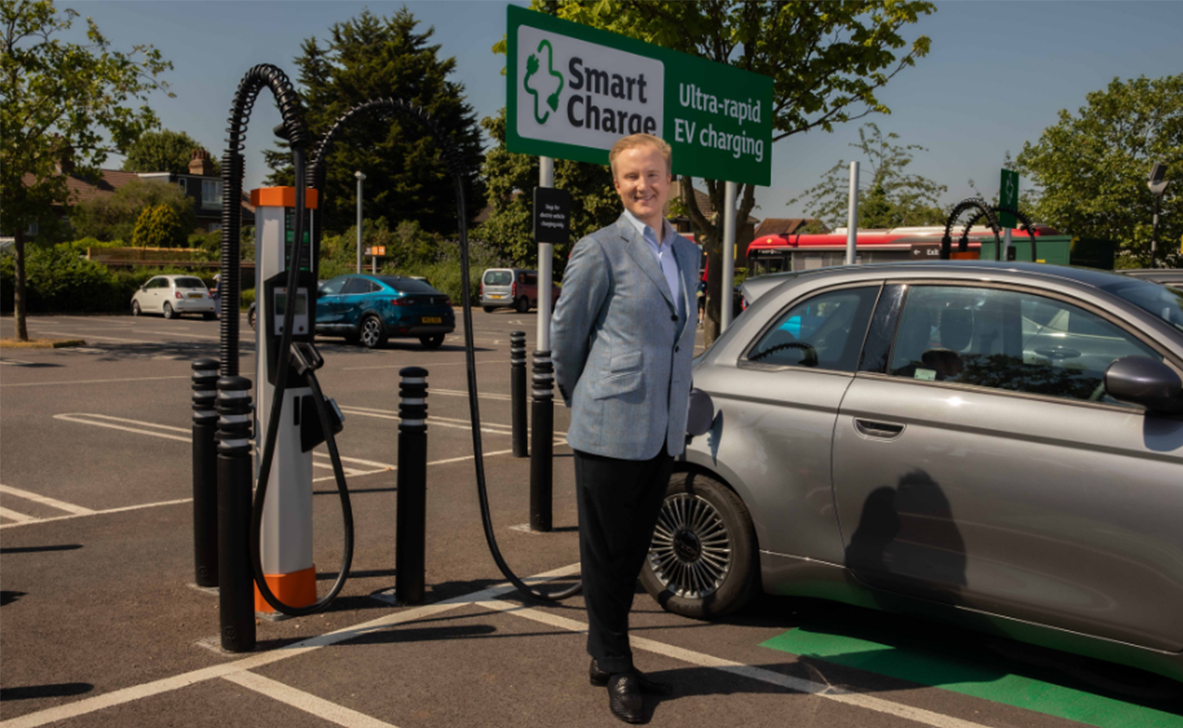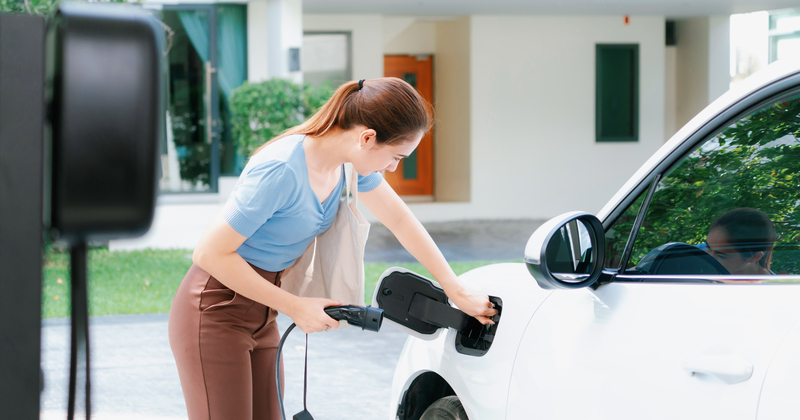
That is one of the findings in a new report from UK online car marketplace Auto Trader which finds that women are buying less EVs than men due to mistargeted marketing, despite 48% of driving licences being held by women who have more disposable wealth and independence than ever.
The majority of EV marketing is currently focused on technology, despite just 12% of women saying that they prioritise this when buying a car. Instead, Auto Trader says the focus should be on safety, an area that 65% of female drivers say is most important to their purchase.
Charging fears – not new, but nuanced
Concern about EV charging is not news. Uncertainty about how far you can get, where and when you’ll be able to charge and for how much, plague most EV news pieces, personal anecdotes and product reviews in some way or another.
But the report found that looking at how these concerns - both perceived and real - manifest differently based on segmented demographic groups is vital to understanding how to make electric feel like a good choice for the majority of drivers, and therefore unlock mass adoption.
Firstly, there is the general notion of having - or not having - the fuel to get around when you need it. Historically, a problem that could be fixed within minutes at a petrol pump.
When asked about EV ownership concerns, 43% of women agreed that they were worried about electric charging times compared to just 35% of men. This exemplifies the findings that in general, women are more likely to view EVs, and charging in particular, as “risky”.
For example, women were more inclined to consider what could go wrong with almost half (49%) of women agreeing with the statement “I’d worry it might not be charged when I need it (e.g. in an emergency)” compared to just 39% of men.
And in real life, what does this concern look like?
One of the research participants said: “I know it would be easy to charge it whenever I get home, but I can’t help worrying about what might happen if I forget. I might end up stranded in an emergency!”
Another had a more specific concern: “Our youngest daughter has health issues, and we have a fair few panics with her. Say she had a meningitis scare – that can happen really suddenly. We need to know we can get in a car and go to the hospital quickly. It would be a disaster if we had an EV, and it hasn’t charged properly.”
Although this specific example is an extreme case, the Auto Trader report states there’s plenty of data to highlight that in general, caring responsibilities, covering everything from managing the family calendar (including medical appointments) to anticipating needs of others, fall to women. In 2022 The Centre for Progressive Policy shared that “nearly half of working-age women are providing an average of 45 hours of unpaid care every week, while 25% of men provide 17 hours.”
Specifically, the research uncovered that 47% of all drivers don’t feel there are enough charging points for electric vehicles, and this was brought to life by multiple research participants.
While coverage and reliability are shared concerns for all drivers, when looking at specific worries women have about public charging, there is one area in particular that stands out – safety.
Only 43% of women agreed that they would feel safe using public chargers, for men this figure was 53% and whilst neither number is particularly high – highlighting a clear issue for public charging operators to address – the data clearly shows that this is a gendered issue.
Looking at these concerns through both a gender and age lens, it is women over 55 who are the least likely (just 33% agree) to feel safe. This is 14 percentage points below women in both the younger age categories, where 47% agreed.
Finally, home charging – research found women were “less keen to deal with home installation challenges” and participants shared a variety of concerns around home charging, from the technical specifics.
One respondent stated: “I’ve bought the EV but still need to sort out the home charging. I’ve just heard I might need to ‘upgrade my fuse box’ so I’m terrified I won’t have any way to charge the EV when it arrives!”
Erin Baker, editorial director at Auto Trader, commented on the findings: "Safety, perceived or real, is a huge barrier to EV uptake by women. That includes everything from charging the car in secluded spots at night, to the wider fear of running out of charge, and the consequences of that, whether it’s being stranded with kids on a motorway or not getting a relative to hospital. Women have more of the primary caring roles in society than men, so these risks are both heightened and more real for them."
Discussing her electric concerns, Kirsten Snelling, 34 from Falconwood said: “I know charging at home is easy but if anything goes wrong there could be big consequences, especially when travelling with kids. It already feels like, more often than not, it's the woman of the household that carries the mental load for the family, and this is just another thing to remember that I know will fall to me.”
This lack of marketing has led to women feeling misinformed about the practicalities of purchasing an EV. For example, research shared within the report showed that a quarter of women (25%) thought that electric vehicles were more expensive to run than petrol or diesel cars. Yet, as of April 2023, electric vehicles were on average £86 cheaper per 1,000 miles to run than petrol or diesel cars.
This is just one area where the report highlights that a lack of targeted information has resulted in a prospective disinterest in EVs for women. The report also identifies that women report higher knowledge gaps around EVs with three of the most prevalent knowledge gaps highlighted as how they drive, how long they take to charge and their eco credentials.
A significant concern of women, not expressed as frequently by men, is the possibility of running out of charge on a motorway with children in the back.
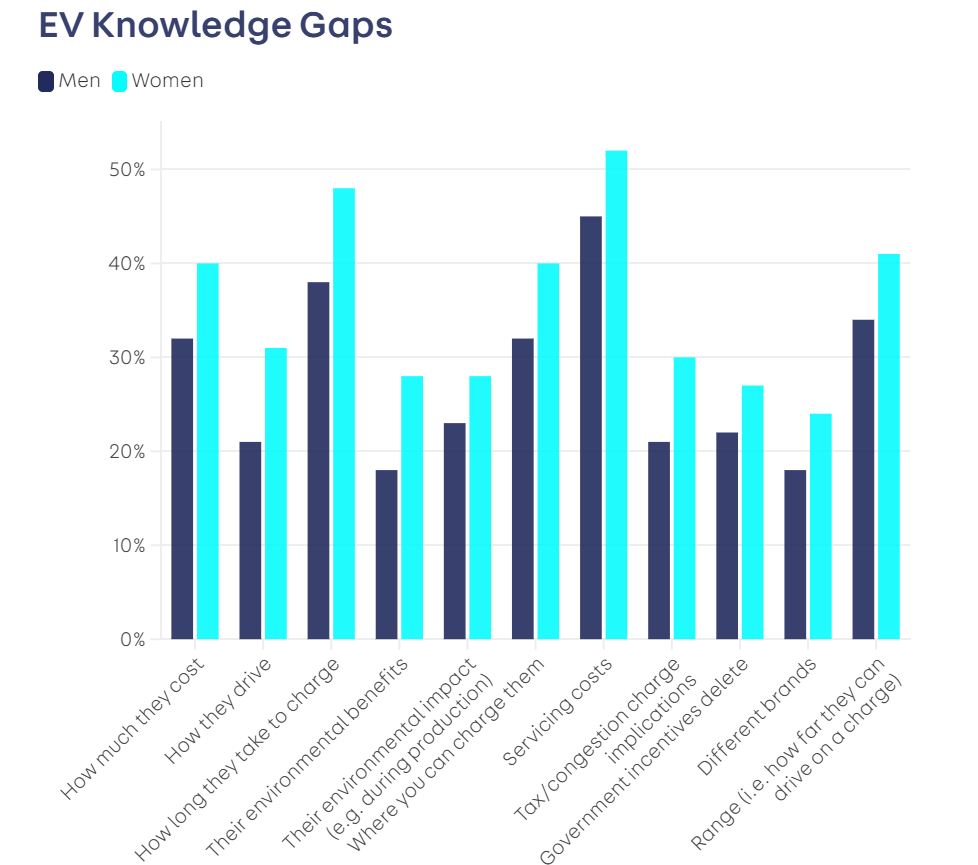
When asked about their EV knowledge, male respondents declared a lower lack of knowledge than female ones. Source: Auto Trader
The report, which sampled 4,000 men and women, highlights a need for more EV promotion on social media and via friends and family to reach women. The Digital Marketing Institute found that 86% of women use social media for purchasing advice, yet the majority of EV promotion is currently in car magazines and newspapers. Additionally, when asked about where they do their car research, women (41%) were far more likely to select family/friend recommendation than men (29%).
Auto Trader is calling for a tailored approach, so women are targeted where they’re already shopping and alleviate their perceived fears about EV’s. This includes focusing on showcasing EVs in a variety of spaces, reducing fear and eliminating risk and leveraging social proof.
To counteract this, Auto Trader is pushing for more women to test drive EV’s as well as working with Hive from British Gas to provide a simplified home charging solution and educate prospective drivers on perceived risk of charging issues vs actual.
Solutions of how retailers, manufacturers, suppliers and the media can engage women with electric cars:
- Showcase EVs in a variety of spaces in women’s lifestyle media and online via social media
- Reduce fear and eliminate risk - Auto Trader is calling for a universal system to monitor and compare battery health on individual vehicles which will help buyers make informed decisions on their next purchase.
- Leverage social proof - By comparing attitudes of EV owners and non-EV owners on a range of topics, we can bust common electric myths and uncover some, perhaps unexpected, benefits that will better engage women
- The importance of test drives – the report shows those that who did buy electric, specifically talked about test drives as a “eureka” moment when they become “converted to EVs”
- Focus on affordability - in many cases, EVs provide a lower total cost of ownership than traditional cars
Baker said: “You'd be forgiven for assuming the advent of EVs, with their more lifestyle-oriented stories around sustainable materials, enhanced services and carbon footprints, would fundamentally change women’s relationship with cars for the better. And yet, as our new data shows, the gender gap is widening...
“Addressing the issues raised in this report should help a large chunk of UK drivers to feel confident enough to take that leap. Without action, adoption will falter. And more and more drivers will get left behind. Faltering adoption is not good for the UK automotive industry but it’s also not good for the environment, public health or social equality.”
Kim Royds, EV director at British Gas, commented on the report: “It’s clear charging concerns are pervasive for all drivers when considering EV ownership, but this research has uncovered concrete areas where women experience these barriers in specific ways.”
“At-home chargers are a vital part of the electrification process and the report highlights the need to educate the public on the cost-savings and simplicity of at-home charging installation in inclusive ways. For example, we are sharing our simple three-step process to help break down any complexities or misconceptions. In the coming weeks, we’re also looking forward to launching our latest EV charger, which will help users save money.”




